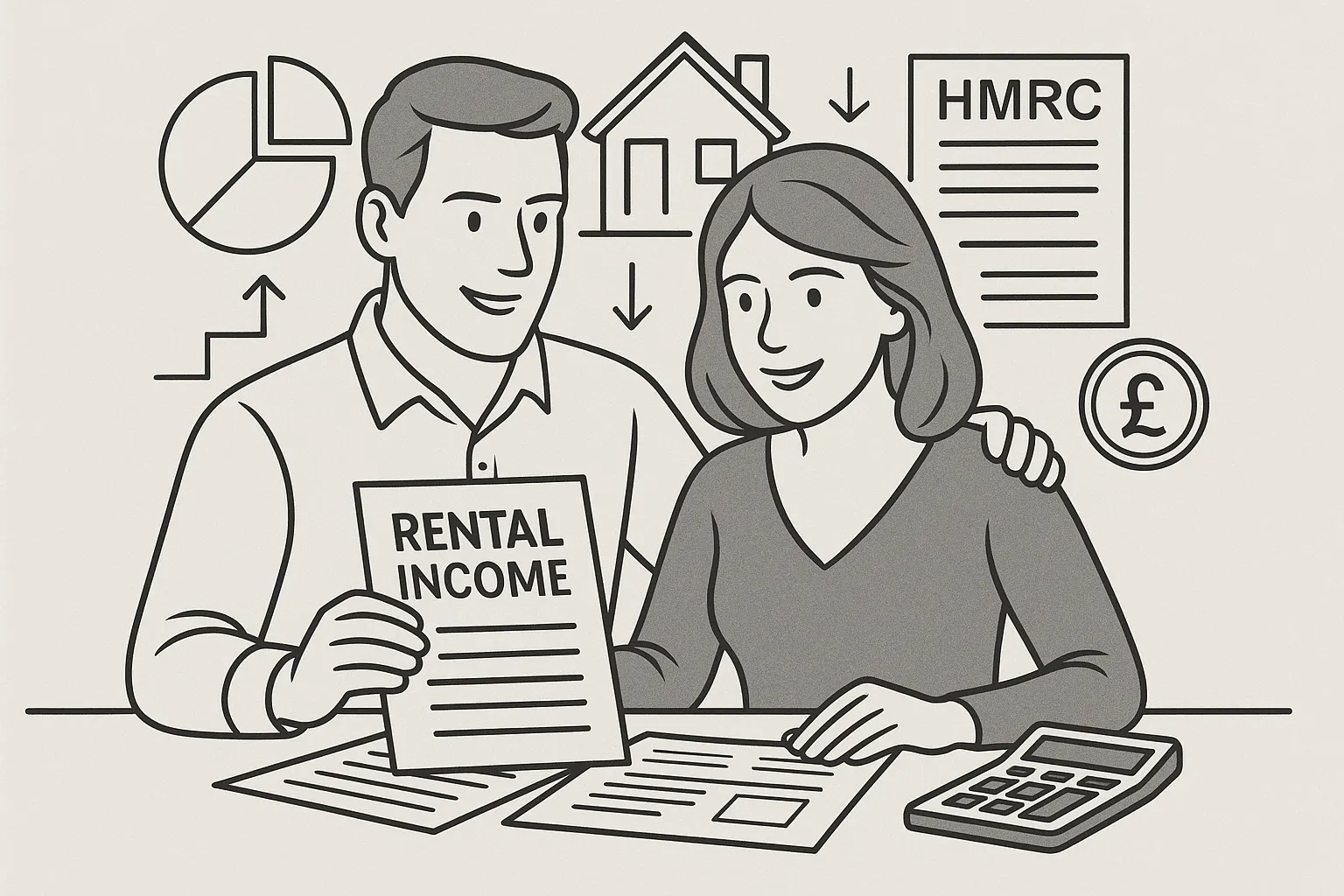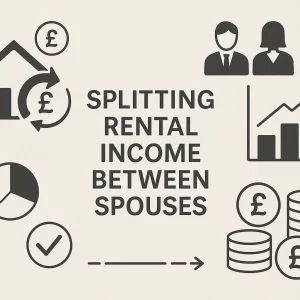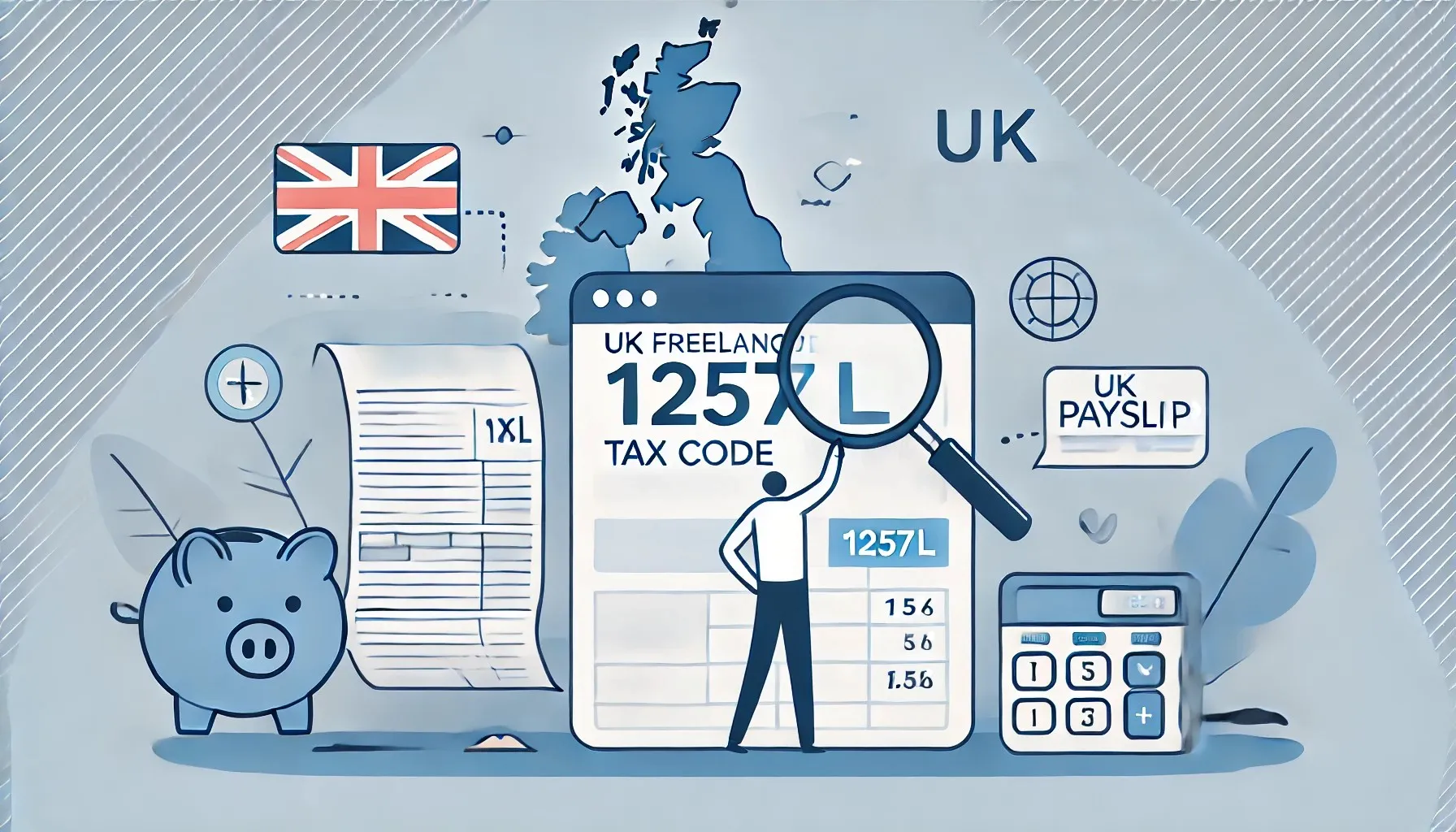Splitting Rental Income with Your Spouse: A Guide for Landlords
- 13 July 2025

How to Legally Split Rental Income with Your Spouse and Maximise Tax Efficiency
Splitting rental income between spouses or civil partners can be a smart move – not just for fairness, but also for tax efficiency. With the right setup, you could reduce your overall tax bill and make better use of both partners’ personal allowances.
But while the idea sounds simple, HMRC has specific rules around how rental income should be shared, and it’s important to get it right. At SBX Accountants, we regularly advise landlords on how to structure their property income in the most tax-efficient and compliant way.
Here’s everything you need to know.

Why Split Rental Income?
Splitting rental income can result in significant tax savings. If one spouse is in a lower tax band (or earns under the personal allowance threshold of £12,570), shifting income to them reduces your combined tax liability.
Example:
- If your spouse pays no tax, they may be able to receive rental income tax-free.
- Even if they’re a basic-rate taxpayer, they’d only pay 20% vs your 40% as a higher-rate taxpayer.
Beyond tax, splitting rental income may reflect each partner’s contribution and simplify budgeting.
Is It Legal?
Yes – HMRC allows rental income to be split between spouses or civil partners if supported by legal ownership or formal documentation such as a Declaration of Trust and Form 17.
Important: You must follow the correct procedure for non-50/50 splits.
Does the Property Need to Be Jointly Owned?
Sole Ownership
If only one spouse is the legal owner, the income belongs to them for tax. To share, you’d need to transfer legal or beneficial ownership.
Joint Ownership
If jointly owned, how income is taxed depends on how the property is held:
- Legal co-ownership: may trigger CGT or SDLT
- Declaration of Trust: allows splitting income without changing legal title
Joint Tenants vs Tenants in Common
Joint Tenants
Default for married couples
HMRC assumes a 50/50 split
You must switch to tenants in common and submit Form 17 to change this
Includes survivorship rights
Tenants in Common
Ownership can be split however you want (e.g. 80/20, 60/40)
Requires a Declaration of Trust
You must submit Form 17 within 60 days to notify HMRC
Both parties must be legal owners
Step-by-Step: How to Split Rental Income
- Check current ownership structure
- If joint tenants, default 50/50 applies
- Switch to tenants in common for custom split
- Draft a Declaration of Trust
- States the beneficial ownership split
- Submit Form 17 to HMRC
- Within 60 days of the declaration
- Only valid if both are legal owners
- Keep documentation
- Ownership records
- Rental income split
- Signed legal agreements
- Rental statements and tax filings
What If You’re Not Married or in a Civil Partnership?
Form 17 doesn’t apply, but income should still reflect actual ownership.
- Use a Declaration of Trust
- Keep records of contributions and ownership shares
- HMRC does not assume 50/50 for unmarried couples
Key Tax Considerations Before You Restructure
Stamp Duty Land Tax (SDLT) – if you’re transferring a share with a mortgage
Capital Gains Tax (CGT) – especially if gifting a portion of a property
Mortgage interest relief – may reduce if moved to joint ownership
Inheritance planning – ownership type affects survivorship and IHT
How SBX Accountants Can Help
We assist landlords across the UK with:
- Splitting rental income legally and tax-efficiently
- Preparing documentation such as Form 17 and Declaration of Trust
- Property tax planning, CGT, and IHT mitigation
- Cloud-based rental bookkeeping with QuickBooks
If you operate via a limited company, we also offer specialist accounting packages for property investors.
Get Expert Support Today
Looking to split rental income with your spouse or civil partner?
📞 Book a free callback or request a quote at sbxaccountants.com
Let SBX Accountants help you stay compliant, save tax, and grow your property income with confidence.





